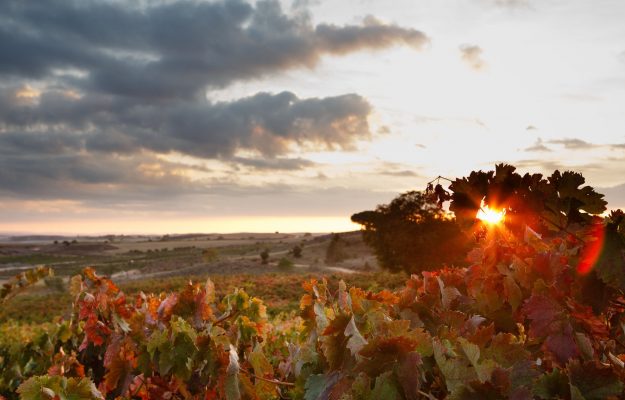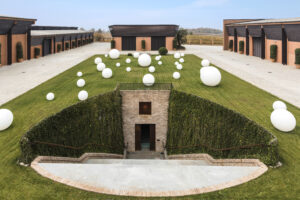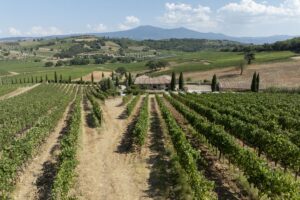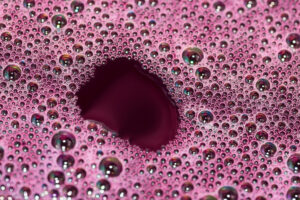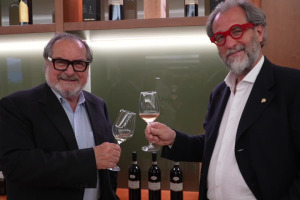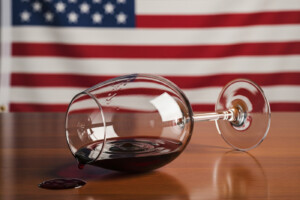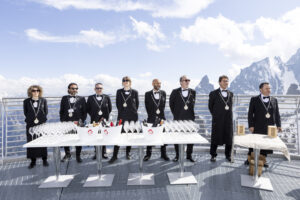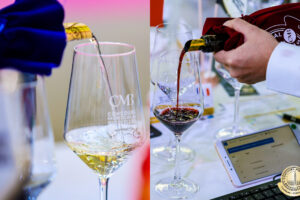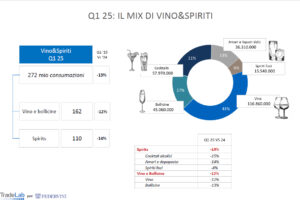Excluding the Coronavirus emergency, which is first and foremost a health emergency, we must try to look ahead, anticipate the future, although difficult, and think about all the measures we can put in place to restart the economy, facing contingencies for today, but also in the long term. Which, for the wine sector, on the one hand, means a harvest that will come according to nature, and that easily - with the drop in consumption, due to closed restaurants, zero tourism and export that will inevitably suffer strong repercussions - will find the wineries, with so much wine “in their belly” and with the need, even logistics, to have space to make room for the new production. As already pointed out, to WineNews, by Professor Attilio Scienza, professor of viticulture at the University of Milan: “for wine, the problem is not immediate, but it will manifest in a few months when we start planning the harvest because if the cellars they will not have disposed of the wine they had vinified last year there will be no room for the new one, and here too there will be an excess of supply on the market and the prices will be very low. And it will also happen in Spain and France, with a huge surplus of wine in Europe.”
On the other hand, however, the Coronavirus crisis will mean a significant drop in turnover, in a sector that, excluding some cases of great excellence, lives of marginality, on average, in the order of 5-10% compared to turnover, and a strong bank exposure, linked to the many investments made in recent years. So, if in the first case we can think of temporary measures, such as the reintroduction of crisis distillation, to make room in the cellar, to provide for the growing demand for alcohol for disinfectants and to guarantee a minimum cash flow to businesses (which will not compensate for the drop in sales, ed), on the other hand, Europe must strike a blow as hard as ever, intervening on the banking system, taking on a year of business loans, because a simple postponement as provided for by “Cura Italia” would only postpone things, and injecting liquidity into an activity more fragile than we think, but fundamental not only for the image of the country but for the stability of many Italian territories. This is, in a nutshell, the thought, to WineNews, of Davide Gaeta, professor of Economics of Viticultural Enterprise at the University of Verona and also the producer of Amarone Della Valpolicella. “Measures such as crisis distillation, which we are starting to think about, can be useful in the immediate future, especially for large wineries, so it is right to talk about it now. But the fundamental thing is that Europe, until now, absent and without a common strategy to face this epochal crisis, which in some ways is worse than a war, strikes a blow as hard as ever. Because first of all, in general, there is the question of when and if the economy will start again. Because there may be a “V” restart as happened many times, with a strong surge in consumption after the crisis. But there could be a long stagnation, or a relapse and a new start after some time. Or even a decline that will remain so. And for the wine sector, the real problem is that, considering the estimates and possible scenarios, it is conceivable that many wineries will see a 70% drop in turnover. This means that with 30% of what was done in 2019, for example, they will have to face costs that, if no action is taken, will not be sustainable for many. First of all the mortgage loans, with many companies that, over the years, have made investments substantially supported by bank leverage. The truth is that, except in some realities, the average wine company lives on margins of 5-10% of its turnover. And, with a collapse like the one we estimate, if nothing is done, it will be a disaster. Europe must intervene, by putting in place measures that, for example, serve to support a year of mortgages, and not simply postpone it. And to inject liquidity into companies, wine and not only wine, of course, otherwise, but it will also be very difficult if not impossible to start again. We need, in short, an injection of liquidity into working capital, and the intervention of finance in risk capital. It’s a great test for the European Union in its holding and its essence, as well as for the business world”.
If this is the clear and crude vision of Gaeta, other opinions, on the state of the art and the measures to be taken, have different tones, but converging on the EU theme. Like that of Luca Rigotti, Coordinator of the Wine Sector of the Alliance of Cooperatives, which represents more than half of Italian wine production: “it is early to make a real estimate of the damage today - he comments to WineNews - and understand how the situation will evolve. First of all, the important thing is the health aspect, then obviously there is also the market aspect. Horeca has stopped, there is no tourism, large-scale retail trade keeps but does not make up for lower consumption outside the home. Export is currently holding, but I emphasize to today, because Covid-19 is starting to be felt now in many countries, and we hope that the impact is shorter than it has been in Italy and that the large-scale distribution holds on abroad. But wine will certainly be damaged, we already have difficulties in managing companies, and here we must thank all those who continue to work and continue to support the economy, in businesses and institutions. Crisis distillation is mentioned as a measure, but it is still early, we need to see how spring will go, and we will see more specifically, over time, how to organize ourselves.
Certainly a ceiling of support for the wine sector we will ask for it, we will see a greater strengthening of exports, the implementation of the “control room” has been requested, but obviously, it is a difficult moment. However, I am convinced that in the sector we will find a way to make sure that we are ready for when things start again. Europe, with the CMO and many other measures that are then adopted at a national level, is already involved, but we will have to ask for more funding for the agricultural sector because we will have problems for the management of the countryside in general. Already today there is a shortage of manpower, it is a problem that we have already submitted to the Ministry because at this difficult time there is a great complexity of overlapping factors”.
In short, the key is Europe, which has to face a much greater test than that which concerns only the wine sector which, however, despite the undeniable difficulties, is experiencing a less serious situation than other agricultural chains, above all those related to fresh and very fresh products, as underlined by Paolo De Castro, S&D coordinator at the Agriculture Commission of the European Parliament. “Tomorrow the Council votes to approve a 37 billion package to deal with the Coronavirus emergency as a whole, then there will be the plenary session, and we have already sent a package of measures to the Commissioner for Agriculture Wojciechowski, we want to support the economic sustainability of the agri-food sector, providing measures and aid to face the current difficulties and those that could arise in the coming weeks. But we need to draft the picture. The sale of food in stores and shops is proceeding regularly, for wine the problem is in the HORECA, but I would not think of measures such as distillation, since wine, unlike other supply chains such as flowers, which can never recover what it loses these days, or other products such as milk, which can only partially stem the losses of fresh product consumption, can store the product waiting for things to start again. And, therefore, I think it is more appropriate to incentivize measures such as storage, perhaps by supporting the economic liquidity of wineries, or by putting in place other economic and financial measures for the sector. In my opinion, it is not yet time to think about distillation, and we need to understand how things will develop. Then it is clear that if the crisis will continue for a long time other assessments will have to be made, but until we understand when things will start again, it is difficult to make predictions”.
Copyright © 2000/2025
Contatti: info@winenews.it
Seguici anche su Twitter: @WineNewsIt
Seguici anche su Facebook: @winenewsit
Questo articolo è tratto dall'archivio di WineNews - Tutti i diritti riservati - Copyright © 2000/2025










